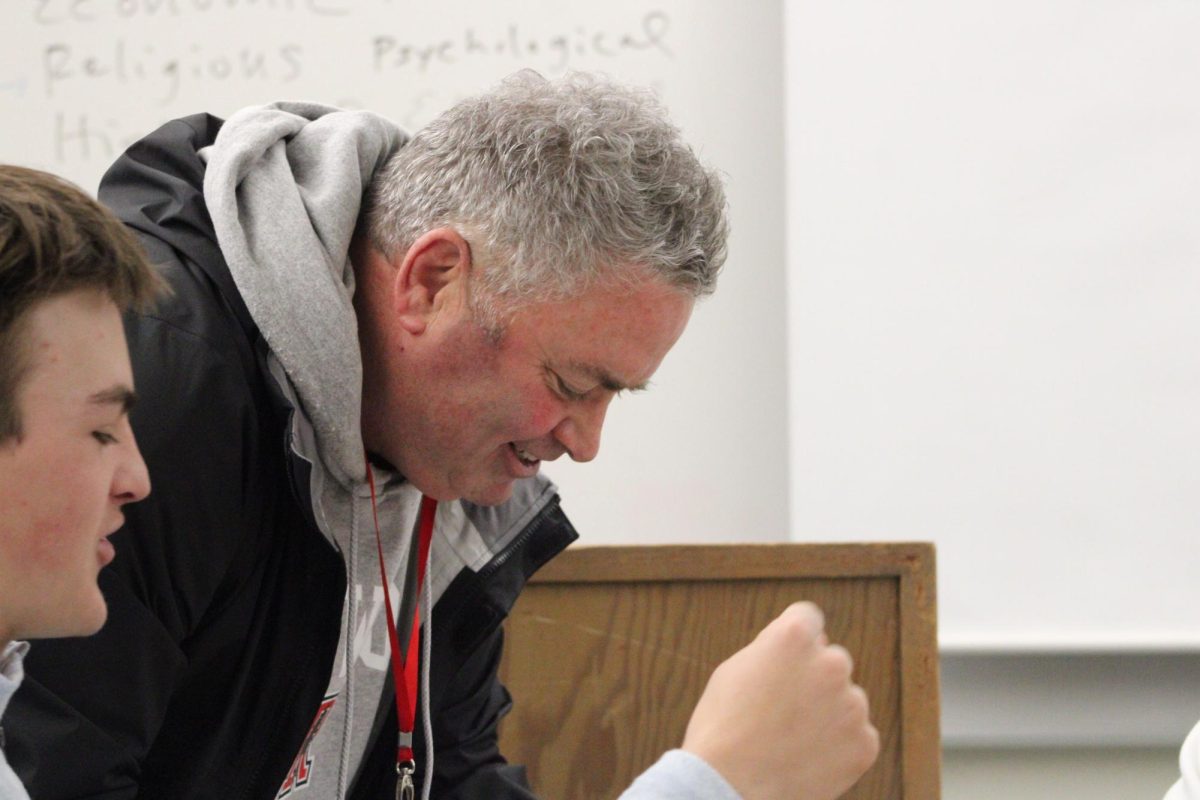As students do their best to balance school work, college applications, extracurriculars and social events, avoiding stress becomes nearly impossible. This time of the year can be overwhelming, however, it can become especially difficult to find which school is the “perfect fit” when you are the first in your family to apply or attend college. Having limited guidance from one’s parents on the college experience can make the application process that much more stressful. According to an October 2022 Bark survey, seven percent of Redwood students consider themselves to be first-generation college students, meaning that they are the first in the family to apply to, attend and graduate college.
Senior Emily Sisuphan is a future first-generation college student and addresses some of the struggles that come with having to learn to filter through the advice being thrown at her.

“[Since] I can’t rely on my parents for information on the college application process, I would say that 80 percent of my knowledge about schools comes from my peers, which I know is not always the most reliable source [of guidance],” Sisuphan said. “There is so much information [about colleges] that is being presented so fast. I try to act like a sponge but it’s so hard to absorb [all the advice] that I need to know without drowning.”
Sisuphan stresses how her feelings of being overwhelmed are often intensified by her family’s lack of perspective on the college experience. While a family member’s personal experiences may not be as credible as a college counselor’s advice, they can still be beneficial to students.
Music enthusiast and senior, Rachelle Belanger, relates to the hardships of being the first in her family to apply to and ultimately attend college. Her parents were born in Thailand and have a limited understanding of the United States college application process, Belanger feels disadvantaged. As she currently tackles the college application process alongside her peers, she emphasizes the frustrating misconceptions people hold.
“My peers and teachers just assume that I understand everything. In fact, I’ve had teachers get frustrated at me over knowing so little about what Advanced Placement courses were or how to register for the SAT. I wish people had more patience for first-generation students like myself. People forget [that] we are quite literally teaching ourselves everything,” Belanger said. “However, I am very grateful for the College and Career Center [at Redwood].”

Becky Bjursten, the College and Career Center counselor, highlights the importance of knowing what resources are available at Redwood. Open daily, this center helps students with financial aid applications and personal statement edits.
“College can be affordable and accessible. It truly just comes down to the support available to get students there. [For first-generation college] students who have limited guidance to their peers, knowing what resources are available is crucial for success during the college application process,” Bjursten said.
While the College and Career Center does its best to make the college process more straightforward and manageable, the stress and pressure to attend any four-year institution is very apparent at Redwood. Sisuphan’s experience of needing to set the precedent for her younger sister to go to college and follow in her footsteps, adds a whole new layer of pressure.
“Being the first child to apply [to] and attend college makes the process a lot harder compared to my peers who have their parents to guide them. While I recognize that I have many resources available to guide me, it’s just a setback that carries heavy impacts. I have to act as the parent for my younger sister, setting the precedent and path for her to walk down more easily when she reaches her senior year,” Sisuphan said.
From a professional standpoint, Bjursten references the common pressures she witnesses in her line of work with both first-generation and legacy students. She addresses that Redwood’s competitive nature does not help students de-stress either.

“From what I have noticed, when you are the first in your family [to attend college], [you face] an internal pressure. You want to succeed in representing your family well, and setting the path for future generations,” Bjursten said. “The pressures are everywhere, and it can be very discouraging.”
When it comes to feeling discouraged, Sisuphan conveys how easy it is to feel self-conscious about one’s ability to succeed when your peers are so much more advantaged than yourself. She offers advice to students in a similar position to herself.
“Trust me, I know it’s hard asking for help. I know it’s scary to admit to yourself and others that you are disadvantaged from a lot of your peers,” Sisuphan said. “At first I was even embarrassed [being a first-generation student], however, as of right now, while I am not to the point where I am fully proud of it, I am more comfortable with it. My biggest piece of advice [to any other first-generation college student] is truly to be the best self-advocate you can be and to get as much help as you can. Get help the moment you need it and don’t forget [that] the services and people available to you are here for the larger purpose of helping you reach your goals.”
For students who need support during the college application process, Bjursten encourages students to stop by room 111 or visit the College and Career Center website..




!["I knew I wanted to be a writer. I wasn't a good student [at Redwood], but I wanted to be a writer, and I wanted to paint. I'm self-taught in all of it, which gave me an original voice," Paige Peterson said. (Photo courtesy of Paige Peterson’s website).](https://redwoodbark.org/wp-content/uploads/2025/02/ppeterson.png)


